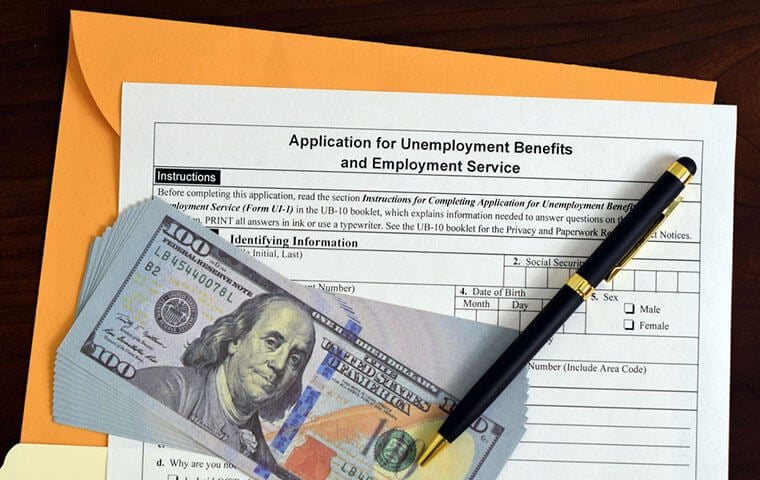 Image: Castleski/Shutterstock.com
By: FEDweek Staff
Image: Castleski/Shutterstock.com
By: FEDweek StaffFederal employees are increasingly looking to sources of financial help as the partial government shutdown now has lasted three weeks and counting. Several of those potential sources, unemployment compensation and outside employment, apply only to those furloughed, while others would apply to those working without pay, as well.
However, outside employment, along with acceptance of gifts and crowdsourced funding, come with ethical restrictions attached.
Unemployment Compensation—OPM guidance says that “It is possible that furloughed employees may become eligible for unemployment compensation. State unemployment compensation requirements differ. Some States require a 1-week waiting period before an individual qualifies for payments.”
“In general, the law of the State in which an employee’s last official duty station in Federal civilian service was located will be the State law that determines eligibility for unemployment insurance benefits . . . Please be aware that you may be required to repay any unemployment insurance payments once an appropriations bill is enacted and you receive pay for the period of the furlough.”
Labor Department information about unemployment insurance for federal employees is here.
Outside Employment—Says the OPM guidance, “While on furlough, an individual remains an employee of the Federal Government. Therefore, executive branch-wide standards of ethical conduct and rules regarding outside employment continue to apply when an individual is furloughed (specifically, the executive branch-wide standards of ethical conduct (the standards), at 5 CFR part 2635).
“In addition, there are specific statutes which prohibit certain outside activities, and agency-specific supplemental rules that require prior approval of, and sometimes prohibit, outside employment. Therefore, before engaging in outside employment, employees should review these regulations and then consult their agency ethics official to learn if there are any agency-specific supplemental rules governing the employee.”
Office of Government Ethics guidance on outside employment during furloughs is here.
Acceptance of Gifts—That same OGE guidance says that employees affected by a shutdown may accept free meals or discounts offered to all federal employees, as well as assistance from organizations that provide aid to members of the general public, such as food banks or religious institutions. Employees also may accept financial gifts based on personal relationships as long as the circumstances make clear that the relationship is the motivating factor, rather than the employee’s federal position.
However, ethics rules restricting acceptance of gifts from co-workers and certain entities that do business with the agency still apply.
(Note: The Federal Employee Education and Assistance Fund makes available “shutdown assistance grants” of up to $150 under certain conditions, although that program currently is temporarily suspended. To check on the status, see feea.org/shutdown.)
Crowdsourced Funding—The OGE guidance says that an employee, or someone acting on that person’s behalf, generally may not start a crowdsourced campaign for donations due to restrictions against soliciting a gift based on federal employment. “Additionally, employees cannot generally accept gifts from prohibited sources . . . Given the number of potential ethical pitfalls, OGE strongly encourages employees to consult an ethics official before any such campaign begins,” it says.
However, it may be acceptable to accept money from a general campaign to assist federal employees in nonpay status, so long as the offer is “to a broad class of employees and does not discriminate based on responsibility, rank, or rate of pay (such as all furloughed federal employees) and the campaign organizer is not a prohibited source.”
TSP Loans—The TSP site says “If you have a TSP loan and are an active participant (not separated from federal service or in a nonpay status for another reason), we will automatically update your status to keep your loan in good standing, even if we do not receive repayments during the shutdown. The lapse in appropriations does not prevent you from requesting a new TSP loan. The established eligibility requirements continue to apply.”
The TSP also allows for withdrawals based on “financial hardship,” although the eligibility requirements and other restrictions are tighter.
Large Share of Federal Workforce about to Experience a Payless Pay Period
OPM Details Coverage Changes, Plan Dropouts for FEHB/PSHB in 2026
OMB Says Federal Workforce RIFs are Starting as Shutdown Drags On
Financial Impact of Shutdown Starts to Hit Home; WH Threatens No Back Pay
Surge of Retirement Applications Is in the Pipeline, Says OPM
See also,
TSP Takes Step toward Upcoming In-Plan Roth Conversions
5 Steps to Protect Your Federal Job During the Shutdown
Over 30K TSP Accounts Have Crossed the Million Mark in 2025
The Best Ages for Federal Employees to Retire

